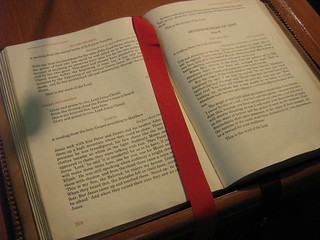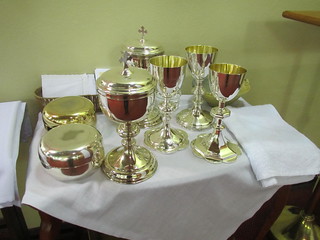Carmel Bulletin, 16 August 2015
The role of the sacristan, or of the group of volunteers who attend to the work of the sacristy, is an important ministry in any parish. These ministers not only assist the priest, but support the entire assembly to participate fully, consciously and actively in liturgical celebrations.
The most typical responsibility of sacristans is to prepare what is required for the celebration on Mass. In our parish, with Mass celebrated every day and five times on Sunday, a team of people take responsibility for different Masses.

So that everything is in place to celebrate the Liturgy of the Word, sacristans will check to see that the Lectionary for Mass is open to the correct readings for the day and is left where the Minister of the Word can look over the texts before Mass. They ensure that the commentary and commentator’s lectern are ready on Sundays, as well as the Book of Gospels.

So that the Liturgy of the Eucharist can be celebrated, sacristans prepare the bread and wine and the sacred vessels such as chalices (cups) and patens (plates). The credence table at the side of the sanctuary is prepared with purificators (linen cloths for wiping the chalices), the corporal (white cloth the bread and wine are placed on for the Eucharistic Prayer) the water cruet, the lavabo bowl (for the priest to wash his hands) and towel.
The missal and other texts the priest needs to refer to need to be prepared for the day. Candles, incense and other requirements may also need to be prepared by the sacristan (servers may also assist).
As you can see, there is a lot of crucial “behind the scenes” work that sacristans do, even for the regular daily Mass.
